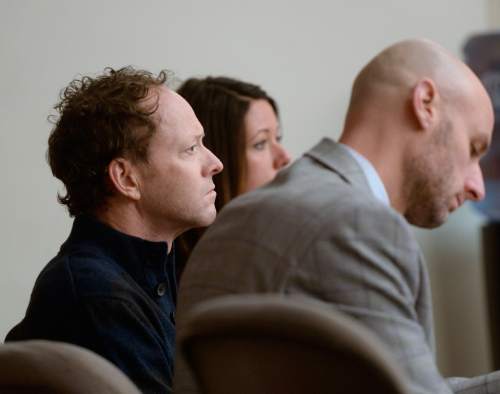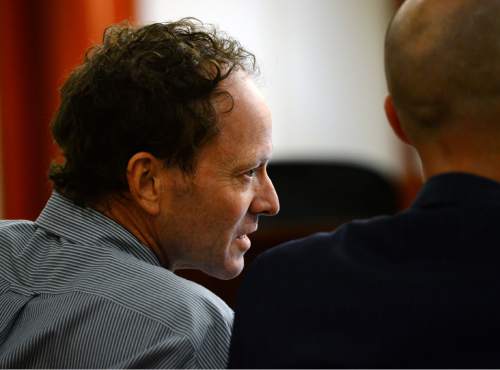This is an archived article that was published on sltrib.com in 2015, and information in the article may be outdated. It is provided only for personal research purposes and may not be reprinted.
Attorneys for a former Salt Lake City pediatrician found guilty of murdering his ex-wife have asked a judge to toss out the conviction, saying in newly filed court papers that problems with trial evidence and missteps by prosecutors are grounds for an acquittal or a new trial.
A jury convicted Johnny Wall on one count of first-degree felony murder in March in connection with the death of Uta von Schwedler, who was found dead in the bathtub of her home in September 2011.
State court records show that Wall's attorneys filed three motions to "arrest judgment," or overturn, the case on Tuesday in Salt Lake City's 3rd District Court.
Among their contentions: Evidence presented at trial did not support the alleged crime of murder; prosecutors failed to disclose the substance of some expert testimony before trial; and DNA test results admitted as evidence should have been excluded because the findings were misleading.
Salt Lake County prosecutors have until June 26 to respond and Judge James Blanch will hear oral arguments on the issues on July 8 during Wall's sentencing hearing, court records show.
Prosecutors contend Wall's murder of von Schwedler was the culmination of a messy, years-long divorce and custody battle over the couple's four children.
Von Schwedler was found drowned in an overflowing tub with a near-lethal amount of the anti-anxiety drug Xanax in her system, although a medical examiner could not determine whether the death was a homicide or a suicide.
Prosecutors contend Wall, 51, attacked his former wife, a 49-year-old cancer researcher, with a knife, drugged her with a slurry of Xanax and then held her underwater in the tub until she drowned.
Prosecutors pointed to Wall's claim that he couldn't remember where was on the night of the murder and a scratch his face, supposedly caused by the family dog, as further evidence of guilt.
Defense attorneys argued that evidence was merely circumstantial and argued that the purported crime scene — a house in disarray and traces of blood in von Schwedler's bed — suggested a possible suicide.
In the new filings, defense attorneys argue that testimony about the results of two types of DNA tests — Y-STR and STR — conducted on a bloodstain found on a pillow should not have been heard by a jury.
The Y-STR test linked Wall or his offspring to the blood sample, while the STR test excluded Wall and suggested that his eldest son was the likely source, court papers say.
The defense contends that prosecutors unfairly discounted those conclusions and allowed state experts to "disregard the limitations of Y-STR testing" and conclude that the DNA profile found in the sample matched Wall's own DNA profile.
"Had the evidence not been admitted into evidence, the outcome of the trial would likely have been different," court papers state.
In a separate motion, the defense contends Wall should get a new trial because prosecutors failed to provide them with reports detailing the expected testimony from a key rebuttal witness with opinions about the presence of the drugs found in von Schwedler's blood, the condition of her body when it was found in the tub and her psychological state before death.
Finally, defense attorneys argue that prosecutors failed to find von Schwelder was murdered by Wall, saying their conclusions were based on circumstantial evidence and the opinions of "experts describing inferences" that could be drawn from it.
"These conclusions are purely speculative," court papers say. "The evidence does not support a reasonable inference that a homicide had been committed."
In June 2013, Wall signed an agreement with the Division of Occupational and Professional Licensing, giving up his medical license and his ability to write prescriptions until the murder case was resolved.





